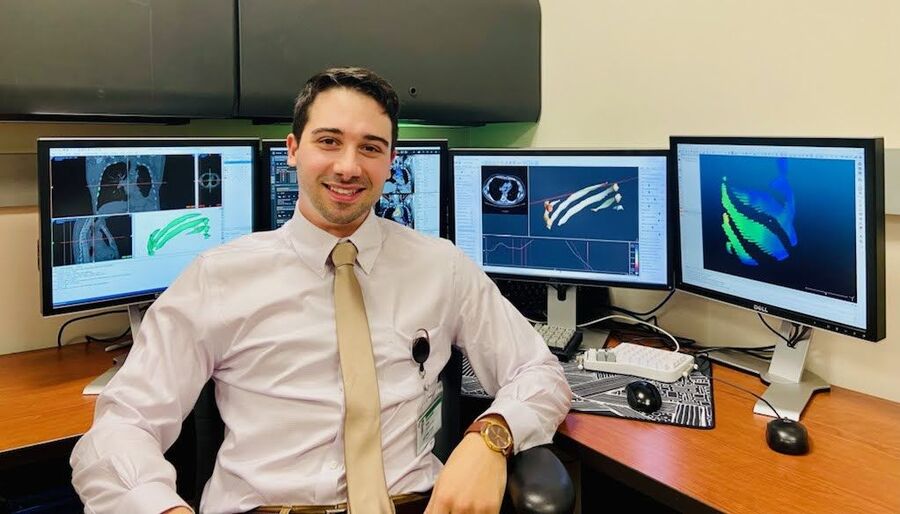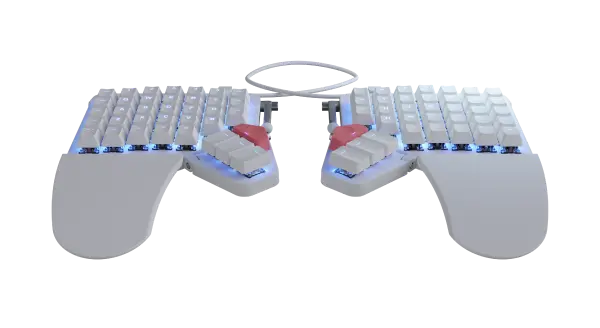The people who use our boards.
392 interviews since 2018
Alex
Borg
Biomedical Software Engineer
Who are you, and what do you do? What do you like to do outside of work?
My name is Alex Borg. I just graduated with my PhD in biomedical engineering from Wake Forest University after completing my BS in the same field at The College of New Jersey. I'm waiting to hear back from NASA about a post-doctoral position at the Translational Research Institute for Space Health, but am currently enjoying a break between positions.
My research involves the study of radiation's effects on bone tissue, so I work primarily with cancer patients and astronauts. Cancer patients receive extremely high levels of therapeutic radiation to tumors, though it often collaterally damages nearby tissues. You can read more about it in one of my publications. Astronauts are exposed to dangerous heavy ions emitted from stars. These are unique to the space environment, and their effects on biological tissues are capricious and deleterious. You can read a bit about it in another of my publications. A comprehensive list of my publications may be found at ORCID. My responsibilities include a broad range of clinical treatment validation, radiation oncology software development (mostly in Python and MATLAB), space environment simulation, and particle collider hardware assurance.
Outside of work, I love being productive in general; I just started my own company, Biomedical Software Engineering LLC. I read a lot of nonfiction (I just finished Thinking, Fast and Slow again—amazing), and hiking has been great in NC in graduate school. Now that I'm back in the NYC area, I'm loving the museum and opera scene. I live in Greenwich Village, so delicious eating is also a huge part of my life. I also travel whenever possible, of course! I just got back from Jamaica, and I have an Africa trip coming up next year to several countries.
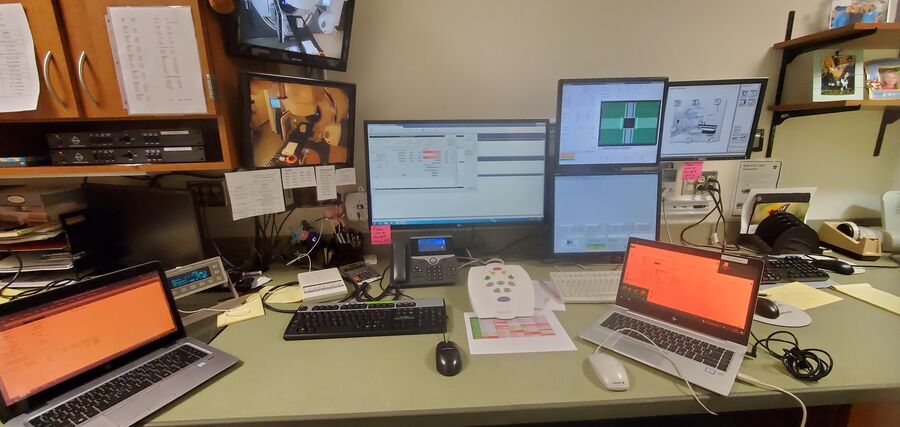
What hardware do you use?
Having just graduated, I use the simple HP laptop that was given to me from school half a decade ago. (I'm hoping my next job upgrades me, though I'm not complaining). I have an ASUS laptop as well. Neither are gaming laptops. As an audiophile, I'm obsessed with my Sony WH-1000XM4 headset. I also have a Harman Kardon Go + Play 2 for the outdoors. Otherwise, I have a few programmable, mechanical keyboards. One is a pad like this Koolertron, whereas the other is more recognizable: Razer Tartarus Pro. I also love my Logitech MX Vertical.
I use a lot of clinical hardware. Intensity-moduled radiation therapy machines from Elekta and Varian. QUASAR Penta-Guide quality assurance, Sun Nuclear ArcCHECK, etc. You get it. The machine I'm holding in my profile photo above is an Elekta Axesse.
As a biomedical engineer, I recognize how vital ergonomics are. Hands, wrists, neck, eyes—everything should be accounted for! I have several rollers for my body itself, though I'm partial to the Rumble Roller. I also ensure my monitor is a comfortable distance from my eyes and at the right level, but I don't care for any monitor stand in specific.
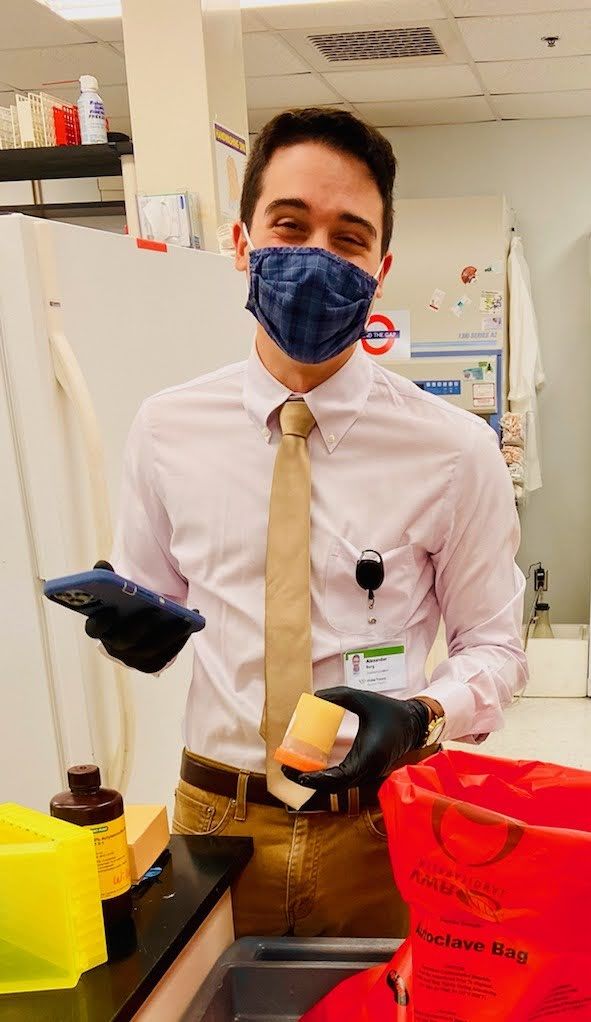
And what software?
I use many, many different kinds of software for my research and passions. I've already mentioned I use Python and MATLAB—though I also use macroing languages for other software (such as the NIH's ImageJ). Other biomedical software includes Materialise Mimics for anatomical analyses using medical images like CT scans. I use Stradview to analyze bone properties from medical images. I use SimVascular and ParaView to analyze vasculature and lymph tissues. I use RayStation and Pinnacle to design and evaluate clinical radiation oncology prescriptions.
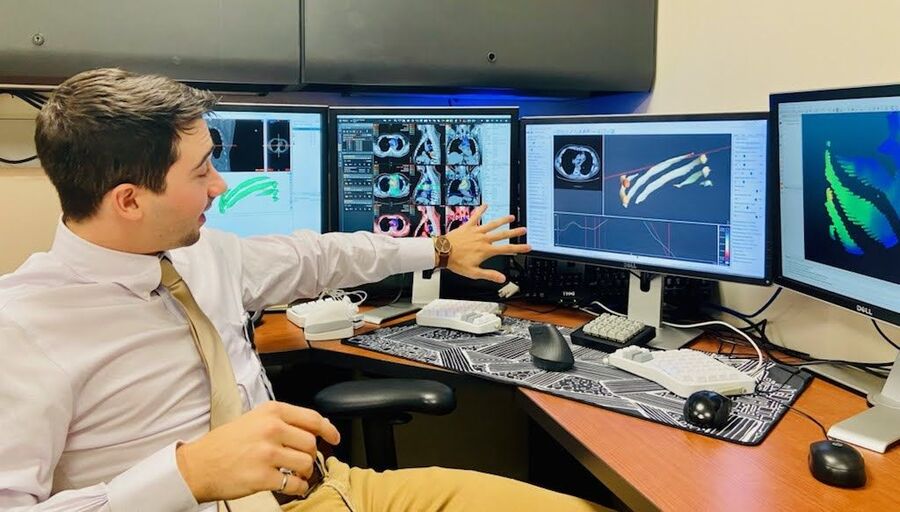
As a biomedical engineer, it's vital to apply conventionally mechanical software to the human body. For example, I use SolidWorks to design implants and ANSYS to test them using finite element modeling and heat transfer analyses.
What’s your keyboard setup like? Do you use a custom layout or custom keycaps?
Actually, this may be the most boring part. I basically use the vanilla keyboard with regular keycaps (for now). I have altered my Alt keys to be friendly towards my various biomedical software, though. I have Cherry MX Brown switches on my ErgoDox EZ.
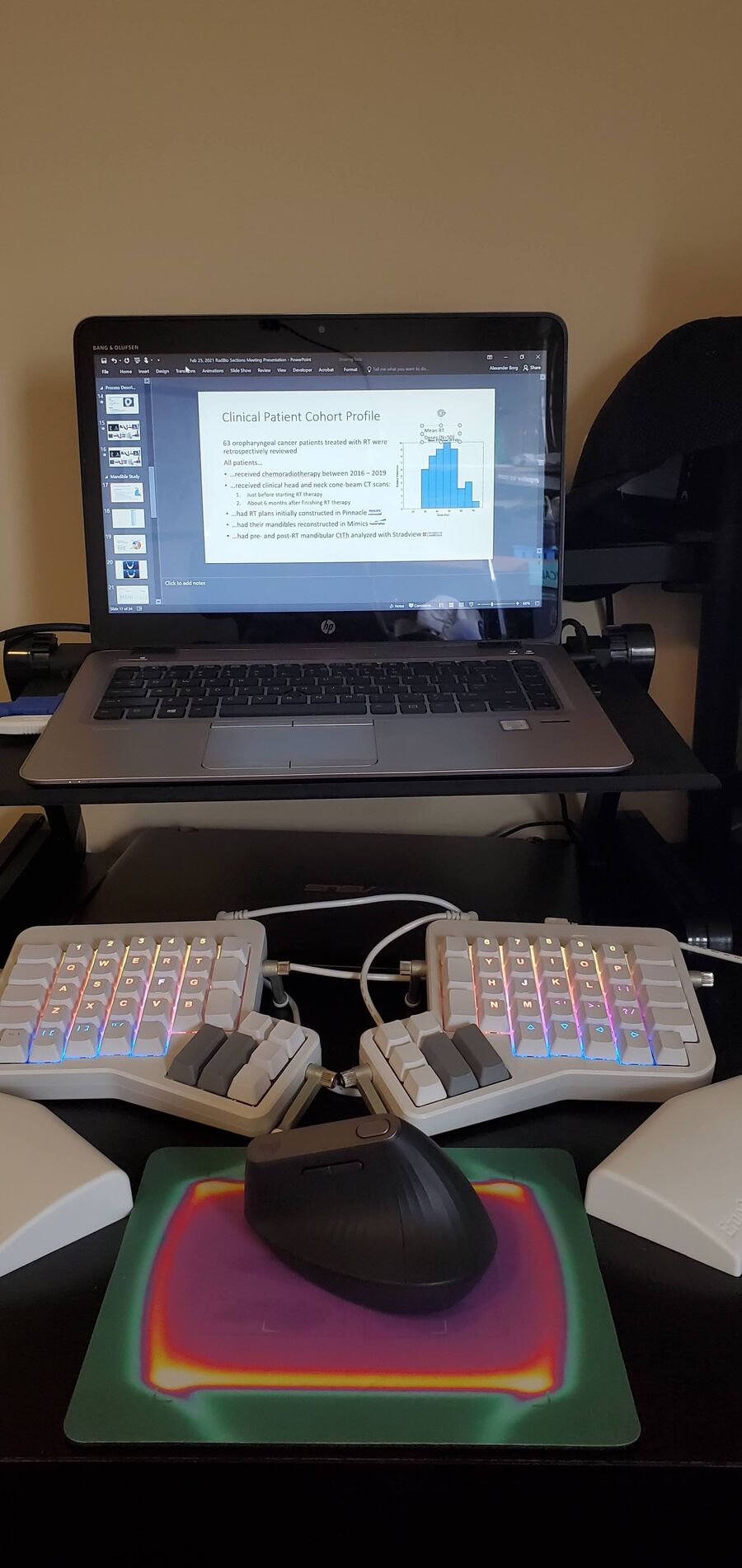
What would be your dream setup?
I would absolutely love to affix four monitors in a two-by-two shape to the back of a standing desk that I could roll around. A little aggressive, but I think it's inevitable. I would also love to try some other ergonomic mice, like Evoluent. I think my current setup is great, but I could also use a better chair. Don't neglect your lower back!
